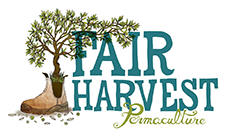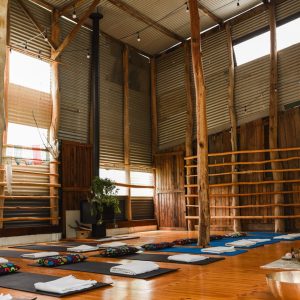 We are exited to be a part of the new Margaret River Organic Garden Trail, here is a little info about the trail and how it came to be, written by Sharyn Carroll from the Margaret River Organic Garden
We are exited to be a part of the new Margaret River Organic Garden Trail, here is a little info about the trail and how it came to be, written by Sharyn Carroll from the Margaret River Organic Garden
Pick up the newly published brochure and map from the Margaret River Visitors Centre or from any of the venues on the trail.
Organic Garden Trail
 The Organic Garden Trail idea evolved from a Garden Tourism workshop featuring international speaker Richard Bennfield that took place in Nannup in early 2014. Locals, Sharyn Carroll and Shelley Cullen (both volunteers of a community garden) have been working on the concept since this time, believing that many tourists would be interested in sharing the Margaret River organic garden story.
The Organic Garden Trail idea evolved from a Garden Tourism workshop featuring international speaker Richard Bennfield that took place in Nannup in early 2014. Locals, Sharyn Carroll and Shelley Cullen (both volunteers of a community garden) have been working on the concept since this time, believing that many tourists would be interested in sharing the Margaret River organic garden story.
Seven Organic Gardens currently feature in the Trail all with very different enterprises that operate alongside. It is envisaged that the project could expand over the coming years to include other destinations and districts. For a wide variety of tourists, the Margaret River Organic Garden Trail will be a fascinating exploration, unlike any other, into the growing world of organic gardening.
The Organic Gardens in the Trail
Cullen Wines
Our Enterprise
Cullen Wines was established in 1971 by Dr Kevin and Diana Cullen, whom from the very beginning had a deep respect for the environment and the land on which they planted their vines. In 1998 they converted to organic farming, and in 2004, under the care of daughter Vanya Cullen, the Estate was converted to be fully certified biodynamic. As a result, Cullen produce award winning wines that ‘bring the land to the glass’ and speak to the terroir of the beautiful region they come from. These biodynamic wines are renowned throughout Australia and the world as being of the highest quality and consistently receive coveted awards and ratings. The Winery features a popular restaurant that overlooks the beautiful vines and utilises fresh produce from their own biodynamic garden, attracting visitors from all over the world, whom Cullen continue to communicate with to promote WA wines and the principles of biodynamics. Along with being carbon neutral, water self-sufficient and solar powered, Cullen Wines have proven that it’s possible to cultivate exceptional wines as ecologically responsible as they are distinctive and elegant.
Our Biodynamic Spiral Garden
In response to the level of interest in biodynamics from visitors to Cullen winery the Self-Guided Spiral Garden Biodynamic Tour was installed in 2003. As the name suggests, the intention is for people to be able to stroll through the garden at their leisure and follow the fascinating biodynamic process that is employed throughout the winery and the gardens at Cullen. Visitors can touch, feel and read about the actions and the concepts for themselves, from the development of Steiner’s preparations, to the flow-form series of vortexes. They can actually experience the produce that the chef uses in preparing his dishes for the restaurant, and understand the meticulous care that goes into caring for the vines and the land. Visiting the Spiral Garden is free, and for those interested, a guided tour can be arranged for a fee.
Fair Harvest Permaculture Farm
Our Enterprise
Fair Harvest is a beautiful venue set on an established permaculture farm. The ethics of permaculture are “Care for the Earth”, Care for the People” and “Fair Share”. These are ethics that founders Jodie Lane and Dorothee Perez work to maintain throughout their gardening practices and business. Fair Harvest hosts numerous courses and events related to sustainability throughout the year and is also available for hire, becoming a popular venue for people wanting an eco-friendly setting. Fair Harvest is also open every Thursday for a local organic lunch. In 2014 Jodie was runner up in the West Australian Rural Woman awards for her Eat Local project. Jodie and Dorothee are passionate about the role that local food plays in community well-being and open their farm once a month for local growers to get together to swap seeds, plants and excess produce.
Our Gardens
The Fair Harvest Gardens were started in 1995 and have always been firmly based in Permaculture and Organics. The large food gardens include vegetable gardens, deciduous and evergreen orchards, composting and poultry systems. Smaller demonstration systems include aquaponics, wicking beds and compost generated hot water. The Fair Harvest gardens were created on cleared farmland and one of the priorities was to establish wind breaks, these trees now protect the gardens and have created beautiful pockets for other uses such as a communal fire pit and cob pizza oven, a ceremonial area for weddings and campsite for visitors. The farm also has beehives, cattle, an olive grove, a timber plantation and large areas of bush regeneration. Guided tours are available by booking and every Thursday visitors are welcome to walk around the gardens using the self-guided tour map.
We look forward to welcoming visitors who are following the trail, Fair Harvest is open to the public every Thursday for lunch and self guided tours, Wednesday self guided tours and coffee only (as we are in the kitchen preparing for Thursday). Visit us for a Swap Shuffle Share or call to organise a guided tour .
Margaret River Primary School
Our Enterprise
MR Primary School is a member of the not-for-profit Stephanie Alexander Kitchen Garden Foundation program that aims to teach young students the importance of growing, harvesting, preparing and sharing food grown in an organic setting. The school has been engaging students in all aspects of growing food since they started the Foundation garden program in 2009 and then embraced the full program in 2012 when they built their wonderful kitchen facility. They cater for their Year 4 and Year 5 students [around 220 of them]. The philosophy that underpins pleasurable food education is that by setting good examples and engaging children’s curiosity, as well as their energy and their taste buds, they can provide positive and memorable food experiences that will form the basis of positive lifelong eating habits.
Our Kitchen Garden
This garden delivers regular kitchen and garden classes, enabling skills-based learning that extends across the school curriculum. The aim is simply to provide their students with opportunities to learn how to grow fresh, seasonal produce and then learn healthy ways to prepare and share this home grown food. They believe in sustainability principals and include compost, chickens and worm farms to recycle organic waste. Their water is supplied wholly through a reticulated system drawing from rain water tanks that are replenished through the winter period.
Our Enterprise
When Felicity Haynes retired from teaching philosophy of education at university, she sought an idealistically relaxing lifestyle on her 118 acre farm. In the last ten years she has created a spiritual retreat which is self-sustainable and shows reverence for the land. She now has some off-grid electricity, her own water, and more fruit, vegetables, honey and fresh eggs than she can eat! There is also a magnificent meetinghouse and studio for accommodation, workshops, and weekend retreats, with small dwellings housing a community of itinerant workers. The whole farm functions bio-dynamically in the spirit of Gaia our Earth Mother.
Our Organic Garden
There is a large netted orchard of over 40 fruit trees, reticulated by a solar pump from a groundwater soak running off the neighbouring state forest, and a driveway lined with citrus and fig trees. There is a recently constructed food forest, with truffle-impregnated oaks and avocadoes lining the road up to the meetinghouse. The meetinghouse itself, looks out upon a 35metre diameter lavender labyrinth. There are 50 acres of natural bush, so there is some predation from resident kangaroos and rabbits, but mostly there is wonderful bird life, fungi, and bushwalking.
Margaret River Organic Garden
Our Enterprise
The Organic Garden was started in 1988, by the Margaret River Alternative Technology Centre to be used as a place of education, specifically to encourage local families to grow their own vegetables, herbs and flowers in an environmentally friendly manner. From the beginning, all of the garden plants were gifted or acquired by generous donations from the community and the garden was planted and tended by local volunteers. It is believed to be the first “organic community garden” in Western Australia.
The Organic Garden
Today, The Organic Garden continues to thrive. It has matured into a beautiful if somewhat rambling oasis in the heart of the town. The object of the garden is not to be a showcase but rather a space where adults and children are encouraged to meditate, sing, paint or rest and listen to the birdsong. It is a beautiful venue for those who use it. The Margaret River Senior High School uses it for photography, film making and drama. Margaret River Education Campus often uses the garden for their projects for students in their Art and Photography classes and/or their Horticulture projects. Children from the local primary schools make school excursions to the garden for active learning. In the garden, for pre-schoolers there is both ‘Nature Play’ and ‘Garden Play’ groups. The Garden is always open.
The Margaret River Community Centre
Our Enterprise
The Margaret River Community Centre is a not-for-profit community based organisation located in the Old Hospital complex in Margaret River. The Centre’s chief concerns are with social justice issues, family and children’s services and with providing an affordable venue for community groups and organisations. It is used on a regular basis by a wide variety of around 35 different organisations. It is completely self-supporting from rental of office and communal space, both casual and on-going, and from its community child care centre. Integral to the Centre’s purpose is the maintenance of the historic group settlement buildings and surrounding grounds and gardens for benefit of the community, and to provide them with a tangible connection to times past in such a rapidly growing town.
Our Organic Garden
The grounds of the Old Hospital form the surrounds of the Centre, and are linked to the library by the Federation Park garden. They provide a welcoming and much used quiet, green space close to the CBD, and a refuge for small native wildlife such as our resident bandicoots and skinks. The Centre gardens are an eclectic mixture which give a period setting to the historic group settlement buildings, and landscape plans are gradually being implemented as finances permit. A small kitchen garden provides fresh herbs and greens for the twice-weekly Soup Kitchen held at the Centre, and gives the children from the child care centre an opportunity to have first-hand experience of organic food growing as a part of their sustainability focus. Organic processes are used for all gardens at the Centre, and waste from the childcare centre and the soup kitchen are composted in our compost bins or small worm farm.
Margaret River Library
Our Enterprise
The Augusta Margaret River Regional Library outdoor garden was opened in 2013 and it has bloomed into a beautiful space in which to enjoy the fresh air while reading, chatting, or working online. A water feature created by Ian Dowling with design input from the community has been incorporated with a literary quiz hidden in it. The garden space is used for community functions such as morning teas and workshops such as a recent colourful weaving workshop.
Our Garden
Our garden is based on biodynamic principles and offers a full range of sensory experiences for the whole community to delight in – fragrant, edible, textural, visually harmonious, seasonal, and diverse. Our garden is tended and cared for by volunteers and planted according to the seasons. Come along and see what’s growing, we have fresh herbs that you are free to pick and enjoy as picking encourages growth. We have incorporated classic companion plants such as marigolds and alyssum for natural pest control, plus Australian natives such as Correa species to attract birds who help to keep pests down and increase diversity in the garden. The garden is open during library hours six days a week (Mon-Sat).











